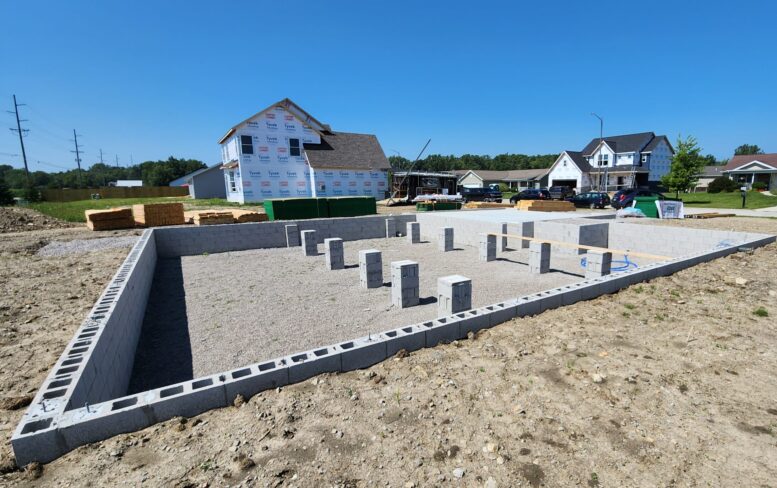By JAN LARSON McLAUGHLIN
BG Independent News
Bowling Green is looking for ways to clear hurdles that may be holding back new housing in the city.
City Council heard the first reading of two pieces of legislation last week that could encourage builders to break ground in Bowling Green.
The ordinance would place a two-year moratorium on residential building permit fees. And the resolution would offer tax abatement on the increased assessed valuation on renovated or new housing.
“We’ve been talking here in Bowling Green for so long about the need for more housing,” Mayor Mike Aspacher said earlier this week.
Compared to some other cities in the region, new housing in Bowling Green offers slim pickings. In 2021, there were 24 new houses constructed, then 22 in 2022, and 18 so far this year.
Conversations with area businesses, economic development officials and Bowling Green State University leaders often circle back to the lack of housing in the community.
“That’s a common theme we hear,” Aspacher said. “We need to develop more housing options in Bowling Green.”
It is hoped that by the city dropping fees for new home construction, that builders will view construction in BG more favorably.
“It would serve as an incentive,” the mayor said.
Efforts in the past have focused on improving existing neighborhoods – and those will continue, according to Aspacher.
But the latest legislation considered by City Council is intended to increase the diversity of housing options in Bowling Green.
The need for more housing is clear, Aspacher said, as evidenced by the low housing inventory, increasing workforce demands, and feedback from economic development partners that new housing is imperative. The city’s Community Action Plan has identified the housing inventory as a problem for Bowling Green.
When updating the community’s zoning code, city officials pinpointed housing options as lacking and are working to update subdivision regulations. But because the housing needs are pressing, city staff have been considering other ways to support housing starts.
The fee moratorium would drop fees charged to home builders. Those fees include $1,451 for the city planning department, $275 for the public works department, and $180 for the engineering department. Those fees cover planning reviews, inspection costs, utilities and site development.
Aspacher said the financial impact of dropping the fees is worth it if the moratorium attracts new housing. Adding homes will benefit the community in many ways, he said, noting that the city consensus is that those benefits will offset the temporary revenue reductions. And with rising construction costs, it is anticipated that future homeowners will benefit from these changes.
While the fee moratorium may seem like a drop in the bucket for builders, Aspacher has heard from contractors that it would be helpful.
“I’m told that it is enough to make a difference,” Aspacher said.
After two years, the moratorium will be evaluated, the mayor said.
As for the tax abatement resolution, the newly created position of city housing officer could suspend the tax exemptions if the property is not being properly maintained.
City Council will hear two more readings of the housing ordinance and resolution before voting on the legislation.





